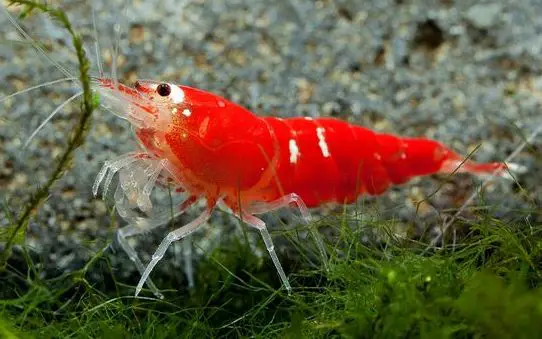A debate on whether or not shrimp need a filter in their tank is ongoing. Some say that the filter is necessary to keep the water clean, while others claim that the shrimp can get all the nutrients they need from food. There are pros and cons to both arguments, and it ultimately comes down to the individual’s preference and what works best for their tank.
Shrimp always look attractive in a fish tank! But do they need a filter?
This article should answer the question of whether shrimp need a filter. It should first discuss what a filter is and what it does in a tank. In this article, you will also know how shrimp use gills to filter the water and get all the nutrients they need from the water without a filter.
Additionally, you will reach a conclusion on if shrimp need a filter or not. So let’s get started by knowing what a filter is first.
What is a filter?
A filter is a crucial part of an aquarium. It removes waste, debris, and toxic elements from the water, keeping the aquarium healthy and clean.
There are many different types of filters available, each with its own set of benefits and drawbacks. Some filters are better at removing certain types of waste than others. Choosing the right filter for your aquarium is important to ensure that it functions properly.
Do shrimp need a filter?
Do shrimp need a filter? You can consider the answer to this question both yes and no. In general, shrimp do not need a filter in their tank, as they are able to scavenge for food and clean the water on their own.
However, if you are keeping shrimp in a tank with fish, it is important to have a filter in order to keep the water clean. Fish produce waste that can quickly pollute the water, and without a filter, this waste can cause problems for the shrimp.
So while shrimp do not technically need a filter, it is highly recommended that you have one if you are keeping them in a tank with fish. It will keep the fish tank clean and will provide a healthy environment for all your little residents.
Why do shrimp need a filter?
Shrimp need a filter because they require clean water in order to thrive. The filter helps to remove harmful toxins and debris from the water, keeping the shrimp healthy.
The filter will help to keep the tank clean by removing debris, toxic substances, and waste from the water that can cause health issues for your shrimp.
It also helps to remove algae from the water, which will make it cleaner for your shrimp. Additionally, to remove their physical waste and degradation of ammonia into nitrites. A properly functioning bio-filter is essential to the health of your shrimp. Without it, your shrimp can become sick and die.
Shrimp is also a sensitive species when it comes to pH. The optimum pH for a shrimp tank is 6.8 to 7.5. They must have a stable pH of around this range, and you should monitor it regularly to ensure that the pH doesn’t drop below 6.8 or rise above 8.0.
Benefits of a filter in a shrimp tank
Having a filter for your shrimp tank is appreciable
A filter can be a crucial piece of equipment for a shrimp tank. It helps to keep the water clean and healthy by providing good biological filtration. This filtration is done by building up a colony of beneficial bacteria, which break down the waste produced by the shrimp.
A good filter will also help to remove harmful toxins from the water. Because with the living presences, your tank is continuously getting dirty. In case you don’t need it for a specific species, a filter is important for the overall betterment of your aquarium.
What types of filters do shrimp need?
There are two main types of filter media. The first is mechanical filtration, which removes the waste from the water by forcing it through a series of small holes in a media bed. The second type of filter media is biological filtration, which does the same thing but with bacteria instead.
The bacteria feed on the waste and convert it into a form that can be absorbed by plants or other organisms in the tank. The most common bacteria used in aquariums are nitrifying bacteria (also known as Nitrobacter), which convert ammonia into nitrite and then into nitrate (nitrogen).
However, there are many different types of filters available in the marketplace for a shrimp tank, and each has its benefits and drawbacks. The most common type of filter is the sponge filter for shrimps. Sponge filters have a porous material that absorbs water. Other than that, you will find different types of chemical filters too.
Conclusion
In conclusion, it appears that shrimp do not necessarily need a filter. However, if one is available, it can be a useful tool in helping to maintain water quality and clarity.
For those interested in adding a filter to a shrimp tank, there are various options available, and each has its own set of benefits and drawbacks. Ultimately, the decision of whether or not to add a filter is up to the individual aquarium keeper. We will suggest you take one for a safer choice.
Related Posts:
